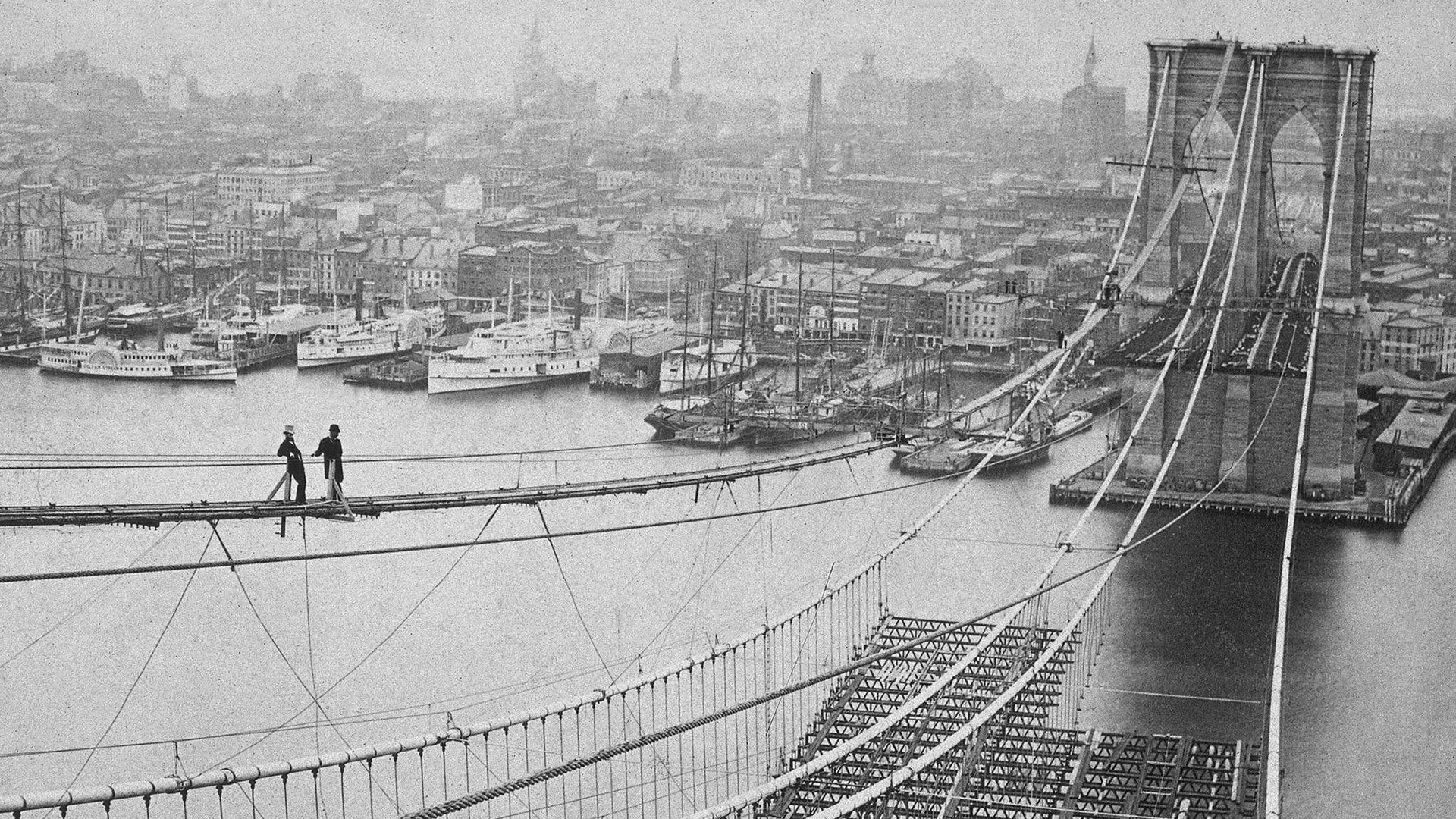A DIRGE FOR DEMOCRACY?
BROOKLYN — 1871 — Several years after the Civil War, as construction began on a great bridge to Manhattan, an aging poet paused to survey America. Walt Whitman loathed what he saw.
Before the war, he had been America's staunchest booster. The young country was "a nation of nations. . . " its genius found in "the common people," its vibrant energy making "these United States. . . essentially the greatest poem." Now, in a small green pamphlet that sold for 75 cents, Whitman took a darker view, one that might seem downright 2020s.
American society was "canker’d, crude, superstitious, and rotten. . . Never was there, perhaps, more hollowness at heart than at present. . . Genuine belief seems to have left us. . . the underlying principles of the States are not honestly believe’d in. . . nor is humanity itself believed in. . . The great cities reek with respectable as much as non-respectable robbery and scoundrelism. . ."
The screed continued, page after page crafted to make patriots wince and make the common man recoil. America must change, Whitman wrote, lest it become "the greatest failure of time."
How had time changed Walt Whitman? Though recently turned 50, he looked like Father Time himself. But though widely read in Europe, Whitman remained profoundly American.
Born in Brooklyn in 1819, he embodied America’s democratic promise. The open sexuality of Leaves of Grass made some recoil, but its spirit, a quintessentially American optimism, brought him praise as "one of the great geniuses of our time." "Happy America," one British critic wrote, "that he should be her son."
In Democratic Vistas, however, the native son is angry. The Civil War, which Whitman spent in military hospitals soothing dying soldiers, had taken a massive toll. In the war's wake, corruption reigned. Cities wallowed in graft. The upstart Klan was terrorizing the South. And everywhere Whitman looked, there was money, money, and more money, making America not "the greatest poem" but just another crass commodity.
"In business, (this all-devouring modern word, business,) the one sole object is, by any means, pecuniary gain.” Even everyday Americans, he lamented, were "full of vulgar contradictions and offense. . . ungrammatical, untidy, their sins gaunt and ill-bred.”
Though written in 1871, Whitman’s lament has a timeless ring. It is the 3:00 a.m. jeremiad that haunts every patriot dream. You can hear Whitman's gloom in today's discourse, from right-wing rants about “carnage” to progressive laments about America as “failed state.” Whitman’s warnings are the residue of the 24/7 cable screech which, though lacking his eloquence, echoes his bitter judgment of people, politics, and the "all-devouring modern word, business."
But read on.
The difference between Whitman and the news is the difference between 3:00 a.m. and dawn. Though Whitman loathed post-war America, he kept faith in its promise. That promise, he wrote, would be realized only when the nation embraced a future scripted by not by our businessmen but by our bards. "I demand races of orbic bards, with unconditional uncompromising sway. Come forth, sweet democratic despots of the west!" Democracy, as paraded each Election Day, was not enough. America needed citizens. Especially women.
Not for Whitman the “fossil and unhealthy air which hangs about the word lady.” Instead: “The idea of the women of America . . . raised to become the robust equals, workers, and, it may be, even practical and political deciders with the men — greater than man. . . In all departments; or rather, capable of being so, soon as they realize it, and can bring themselves to give up toys and fictions, and launch forth, as men do, amid real, independent, stormy life. . .”
America had gone through two formative stages, Whitman wrote. The first was political -- the Founders' ideals and institutions. The second was commercial -- the rise of business. But a third, just emerging, would bring "a native, expressionist spirit." From the Plains, from the Western mountains, from the cities would come words and works to root the restless nation.
So when Americans look around and loathe what they see, they might take heart from "Walt Whitman, an American, one of the roughs. . ." For America wasn't/isn’t done yet. Democracy neither. "The fruition of democracy, on aught like a grand scale, resides together in the future. . . Upon things that exist not. . . . By maps yet unmade."
It was for the creatives, then -- not the businessmen, the politicians, nor even the common man -- to restore America. The stories we tell ourselves, the works we write and read and paint and post, the lessons we draw from them, will lead us out of the mire. And Walt Whitman will be there, urging us on.
I bequeath myself to the dirt to grow from the grass I love,
If you want me again look for me under your boot-soles.
You will hardly know who I am or what I mean,
But I shall be good health to you nevertheless,
And filter and fiber your blood.
Failing to fetch me at first keep encouraged,
Missing me one place search another,
I stop somewhere waiting for you.
SHARE THIS STORY!










